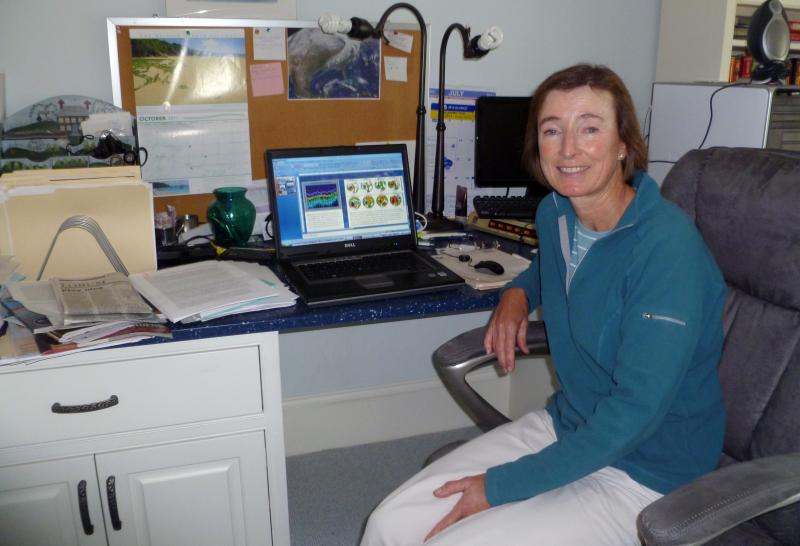Resident studying Arctic climate changes
Jennifer Francis knows a thing or two about the weather.
Francis, a resident and Rutgers professor, is an atmospheric scientist looking for a connection between climate change in the Arctic and weather patterns in the U.S. and Europe.
Her love of weather started at an early age.
“I grew up in Marion and, of course, New England is famous for its crazy weather,” Francis says. “My dad was interested in weather, and when I was young we’d go watch the boats break loose in the harbor or drive out to Cape Cod and see the big waves crashing during a storm.”
Once she got to college, she followed her father’s footsteps and began a path to dentistry. But that changed when she went on a sailing trip with her husband, Peter.
“The weather ruled our lives during that time, and Peter helped me realize I should do what I love, not what I felt I should do. So I immediately switched majors.”
Francis says their trip, which was during the 80s, also took them to the Arctic.
“At the time, the forecasting was horrible,” she says. “I realized that we didn’t know anything about this part of the world because no one was predicting the weather correctly!”
After completing her Bachelor’s at San Jose State University, Francis went to University of Washington, which had a polar research center. Since getting involved, she says, scientists realized the climate would be an important issue.
Now, Francis works from home, collaborating with other scientists on research and writing proposals for grants.
“The thing I’m most excited about is getting a bigger picture of how the Arctic works and how it fits into the globe,” she says. “And also how events in the Arctic are affecting people in regions below it.”
Francis says extreme weather such as droughts, heat waves, cold spells and flooding could be connected to changes in the Arctic atmosphere. To gather research, Francis works with other scientists in the field and collects data with the help of satellite readings from the region.
So, is weather up north the reason we’ve seen (nearly) two hurricanes and snowy winters?
Maybe.
“It’s always hard to say any particular weather event is related to climate change,” Francis says. “It’s really about statistics over time. You can’t just look at something and say, 'Oh yeah, that’s climate change.’ But you can look at the frequency of changes at certain locations and you can see the tendencies over time.”
If her research proves conclusive, Francis says there are a number of benefits.
“We’ll be able to plan how to prepare and adapt to these patterns more easily. I think we’re already seeing these changes happening and can say, to some extent, that the enhanced warming in the arctic is playing a role in this. And that’s exciting to me.”
Jennifer is also contributing to "Energy Wise," the Marion Energy Management Committee's blog, which can be viewed here.












